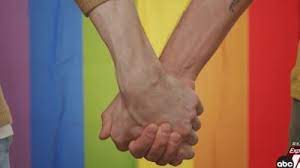Grief is a universal experience that accompanies loss, but when it comes to gay individuals, grief can be compounded by unique challenges and societal attitudes. The loss of a loved one, whether it be a partner, family member, or friend, can be deeply painful, and seeking support through gay grief counseling can provide invaluable assistance in navigating this difficult journey. In this article, we will explore the importance of gay grief counseling, the benefits it offers, how to find the right counselor, the counseling process, and overcoming barriers to seeking help. By shedding light on this topic, we hope to foster understanding and provide guidance for those in need.
Contents
Understanding Gay Grief

Gay grief refers to the experience of mourning and processing loss within the LGBTQ+ community. Loss can take various forms, including death, the end of a relationship, or a rupture in social connections due to factors such as coming out or rejection. Gay individuals often face additional challenges in the grieving process, as societal attitudes, discrimination, and stigma can complicate their emotions and support systems.
Gay grief encompasses the emotions, thoughts, and behaviors associated with loss, while also considering the specific circumstances faced by individuals within the LGBTQ+ community. These challenges may include navigating issues such as internalized homophobia, rejection from unsupportive family members, and the absence of legal recognition for same-sex partnerships.
Societal attitudes toward homosexuality have significantly evolved over the years, but stigmatization and prejudice persist. This can create a hostile environment for grieving gay individuals, inhibiting their ability to openly express their emotions or access appropriate support networks. As a result, gay grief counseling becomes an essential resource for those seeking a safe and affirming space to heal.
The Importance of Gay Grief Counseling
Gay grief counseling provides a unique environment that acknowledges the specific concerns and experiences of LGBTQ+ individuals. It offers a safe and inclusive space where clients can freely express their grief, explore their emotions, and receive support without fear of judgment or discrimination. By addressing the distinctive aspects of gay grief, counselors can help clients process their loss effectively and develop healthy coping strategies.
Creating a Safe and Inclusive Space
One of the fundamental aspects of gay grief counseling is creating an environment that fosters safety, respect, and understanding. LGBTQ+ affirmative therapists possess knowledge and cultural competence, ensuring they can navigate the unique challenges faced by gay individuals. By establishing trust and providing a judgment-free zone, counselors enable clients to openly discuss their grief and explore their emotions authentically.
Addressing Specific Concerns and Experiences
Gay grief counselors are attuned to the specific concerns and experiences of LGBTQ+ individuals, allowing them to tailor their approach accordingly. This includes addressing issues such as discrimination, social isolation, and the complex dynamics of same-sex relationships. By acknowledging and validating these experiences, counselors can help clients navigate the complexities of grief within the context of their sexual orientation or gender identity.
Benefits of Gay Grief Counseling

Gay grief counseling offers a multitude of benefits that contribute to the healing and growth of individuals mourning a loss. Through the affirming and supportive nature of this counseling approach, clients can experience a range of positive outcomes.
Validation and Acceptance
One of the key benefits of gay grief counseling is the validation and acceptance that clients receive. Having their grief and unique experiences acknowledged helps individuals feel seen, heard, and understood. This affirmation can significantly alleviate feelings of isolation and self-doubt, fostering a sense of validation and allowing for a healthier grieving process.
Building Resilience and Coping Strategies
Grief can be overwhelming, and gay individuals may face additional stressors. Gay grief counseling equips clients with tools and coping strategies to navigate these challenges effectively. Counselors provide guidance on self-care practices, stress management techniques, and ways to build resilience, enabling clients to adapt to their loss while preserving their well-being.
Finding the Right Gay Grief Counselor
Finding the right gay grief counselor is crucial for receiving effective support and guidance throughout the grieving process. It is important to consider specific factors when searching for a counselor who understands and empathizes with the unique needs of LGBTQ+ individuals.
LGBTQ+ Affirmative Therapists
When seeking gay grief counseling, it is essential to find therapists who are LGBTQ+ affirmative. These therapists possess specialized training and experience in working with LGBTQ+ clients, ensuring they can provide appropriate and knowledgeable support.
Credentials and Experience
Evaluating a counselor’s credentials and experience is important to ensure they have the necessary qualifications to offer effective guidance. Look for licensed professionals who have expertise in grief counseling, particularly within the LGBTQ+ community.
Compatibility and Trust
Establishing a strong therapeutic relationship is crucial for successful gay grief counseling. It is important to find a counselor with whom you feel comfortable and can trust. The right counselor will be someone who respects your identity and experiences and fosters an environment of trust and openness.
The Process of Gay Grief Counseling
Gay grief counseling follows a structured process designed to support individuals through their unique grief journey. Understanding this process can help individuals prepare for what to expect and make the most of their counseling sessions.
Assessment and Goal Setting
The counseling process often begins with an initial assessment where the counselor gathers information about the client’s loss, history, and specific needs. Together, the counselor and client collaboratively set goals for the counseling journey, focusing on addressing the client’s grief and supporting their healing process.
Individual and Group Therapy Options
Gay grief counseling can be conducted on an individual basis or in a group setting. Individual therapy offers personalized support and guidance, while group therapy allows individuals to connect with others who have similar experiences, fostering a sense of community and validation.
Techniques and Interventions
Throughout the counseling process, therapists may utilize various techniques and interventions to help clients explore their grief and develop coping strategies. These may include cognitive-behavioral techniques, mindfulness practices, narrative therapy, and expressive arts.
Overcoming Barriers to Seeking Help

Despite the benefits of gay grief counseling, some individuals may face barriers that prevent them from seeking the support they need. It is important to address and overcome these barriers to ensure access to appropriate care.
Internalized Homophobia and Shame
Internalized homophobia and shame can be significant barriers to seeking help. The fear of judgment and discrimination may lead individuals to suppress their emotions or avoid seeking counseling. Gay grief counseling helps individuals confront and overcome these internalized barriers, providing a supportive space for self-acceptance and healing.
Lack of LGBTQ+ Competent Services
The limited availability of LGBTQ+ competent services can pose a challenge when seeking gay grief counseling. However, many organizations and directories now offer resources to connect individuals with LGBTQ+ affirmative therapists, making it easier to find suitable support.
Financial and Logistical Considerations
Financial constraints and logistical factors can also hinder access to counseling services. However, some counselors offer sliding scale fees or accept insurance, and online counseling options provide convenience and flexibility, making counseling more accessible to a wider range of individuals.
Self-Care and Support for Gay Individuals
While gay grief counseling is a valuable resource, it is also essential for individuals to engage in self-care practices and seek additional support beyond counseling.
Building a Support Network
Building a support network of understanding friends, family members, or fellow LGBTQ+ individuals can provide significant emotional support during the grieving process. Sharing experiences, seeking guidance, and finding solace in the community can help individuals navigate their grief journey more effectively.
Engaging in Self-Care Practices
Practicing self-care is crucial for emotional well-being. Engaging in activities that promote relaxation, such as exercise, meditation, or creative outlets, can help alleviate stress and promote healing. It is important to prioritize self-care and make time for activities that bring joy and comfort.
Accessing Community Resources
Various LGBTQ+ organizations and community centers offer resources and support for individuals navigating grief. These resources may include support groups, workshops, or online forums where individuals can connect with others who share similar experiences.
Conclusion
Gay grief counseling provides a safe and inclusive space for individuals within the LGBTQ+ community to process their losses, heal, and develop resilience. By addressing the unique challenges faced by gay individuals, counselors offer valuable support that validates and acknowledges their experiences. Through affirming therapy, individuals can navigate the complex emotions of grief and develop healthy coping strategies. By seeking the appropriate support, individuals can begin their journey toward healing and find solace in knowing they are not alone.
Life may sometimes be challenging if you are gay, but Online Gay Counseling can help. Get experienced LGBTQ therapists at PrideMantra: Book a trial LGBTQ therapy session.

